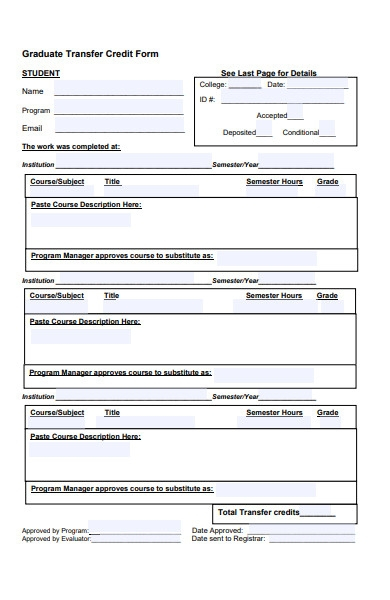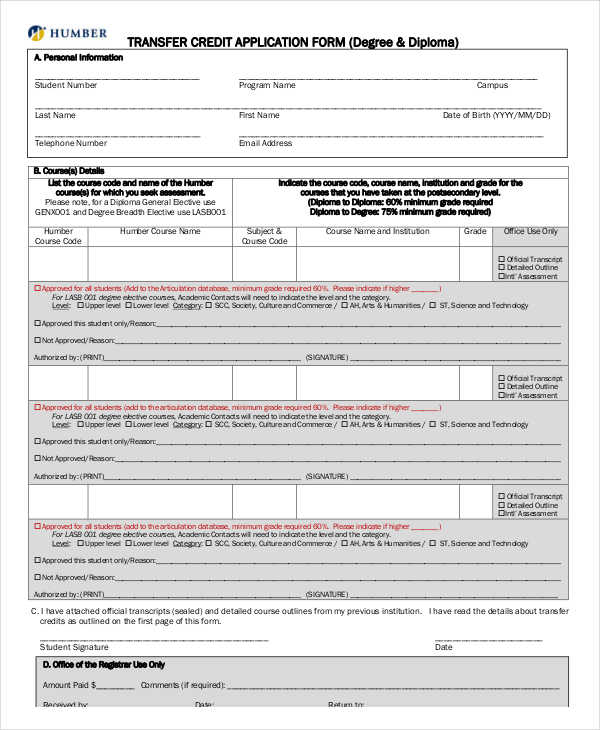Transfer Credit Form – If you’re uncertain about the transfer process and want to know more, you can submit the Transfer Credit Acquired form, or the TCAF. You might have a subject that you’ve not completed or you didn’t get a mark for or perhaps you’re wondering whether you could use it to earn your degree. It’s good news that you can. The majority of courses that get the grade of C or better don’t need material review. However, you should note that coursework that doesn’t transfer to a specific U-M class is considered departmental course credit. If not, you aren’t able to transfer it into a U.M. course and therefore you will not meet the requirements of the degree.
Coursework must earn a grade equal to a C grade or higher.
To be eligible for transfer credit they must be completed with the grade of C or higher. To be eligible to transfer credit, they need to be completed at an accredited institution that is accredited, like The Higher Learning Commission or the Middle States Association of Colleges and Schools (MASAC). International programs are evaluated upon an individual basis. Official transcripts must be given an official transcript to CCS. Your previous institution should also be able to accept the courses.
Transferring credits from your former college, courses completed at a foreign school require a passing grade of C or better. Graduations that pass or are satisfactory are not transferable, nor is college algebra, developmental courses or technical and career courses. However the policy has been altered during the COVID-19 pandemic, and any courses completed prior to that are now accepted.
For transfer credit, courses in regionally accredited schools must have been awarded a grade with a grade of “C” or better in the previous institution. To transfer credits course, they must be comparable in scope as well as subject matter. While a C-grade is the minimum standard for transferable credit some institutions do accept grade levels of “D” or higher. Accreditation institutions comprise institutions like the Middle States Association of Colleges and Schools and the New England Association of Schools and Colleges and the Northwest Association of Schools and Colleges in addition to the Southern Association of School and Colleges.
TCEL lists courses that were transferred to Clemson before. This is not a comprehensive listing and the courses not included here will need to be evaluated prior to applying to Clemson. It is also worth noting that the TCEL listing also lists some course equivalents, but the list does not indicate differences in the amount of credit hours that institutions offer. Additionally, even though the TCEL list courses that are equivalent to the courses offered by other colleges, the Office of Admissions’ evaluations depend on the most current information.
While the previous coursework may be acceptable, it is crucial to evaluate its academic implications. If you’re struggling to complete the necessary course work and you are unable to complete it, you might want to try again. You must earn at minimum a “C” in the course and you have met any conditions to be met by the school. Retaking a course two or three times can affect your GPA cumulatively and you should be cautious before deciding to repeat it.





